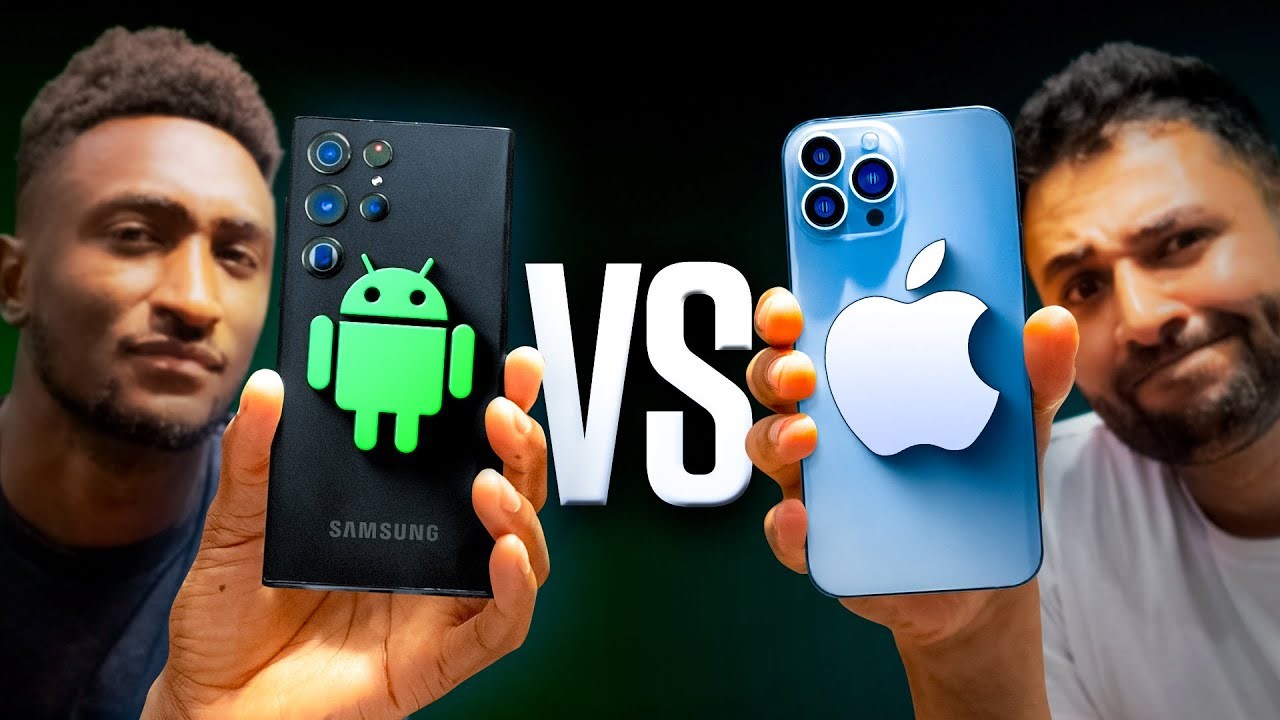
17-Jun-2025 , Updated on 6/17/2025 6:21:24 AM
Android 16 vs. iOS 19: Which Mobile OS Offers the Best AI Features in 2025?
In 2025, AI is a major focus for both Android and iOS. With Android 16 and iOS 19 both bringing generative AI into almost every feature, people are wondering: which one does it better.
1. AI Integration
Android 16:
Android 16 takes a more open approach to AI. Many of its top devices now feature Google’s Gemini AI built into the system. This means users can get instant summaries, create content on the spot, and customize their devices easily—from wallpapers to app arrangements. The AI learns from what you do, adjusting based on where you are and your habits.
iOS 19:
Apple, on the other hand, is all about integrating AI while keeping privacy in mind. Siri now has smoother conversations and handles smart tasks like summarizing Notes and Mail. All these features work well together across iPhones, iPads, and Macs.
Verdict: Android offers more choices and customization, while iOS delivers a user-friendly experience with strong privacy.
2. On-Device AI vs. Cloud Dependence
Android 16:
Thanks to new chip technology, many Android phones can handle AI tasks right on the device. But for tougher jobs like advanced writing or image creation, they often still rely on cloud services, which can slow things down and create privacy risks. Some brands like Samsung add their own AI, which can make the experience feel less consistent.
iOS 19:
With its own powerful chips, Apple lets iPhones run AI tasks locally. Everything from summarizing text to editing photos happens right on the device, leading to quicker results and tighter control over user data.
Verdict: iOS 19 is ahead in on-device AI, while Android 16 relies more on the cloud in many situations.
3. AI in Communication and Productivity
Android 16:
Android smartly integrates AI into apps like Gmail and Docs, providing features like quick replies and tone adjustments. Google Meet even offers AI-generated meeting summaries. Google Assistant has improved, handling tasks across apps with clearer voice commands.
iOS 19:
In iOS 19, the Mail app benefits from AI with helpful replies and smart thread summaries. Notes and iMessage also use AI to enhance user experience, making chat summaries and suggestions based on context.
Verdict: Both do well, but iOS 19 has smoother features across its apps, while Android excels with added flexibility.
4. AI in Photography and Media
Android 16:
Android 16 takes the lead in photo editing with tools like Magic Editor for real-time fixes and AI-driven video edits. The use of Google's AI in creative apps has really taken off.
iOS 19:
Apple’s Photos app has cool AI features like memory generation and mood-based editing suggestions. Users can ask the AI for specific looks, and while it may not be as flashy as Android’s options, it's refined and user-friendly.
Verdict: Android 16 is more innovative in creativity, while iOS 19 offers a polished and straightforward experience.
5. Personalization and User Experience
Android 16:
Android is all about personalization. Users can make custom wallpapers based on their mood and get instant recommendations that fit their usage. The system adjusts visuals and notifications to make things easier.
iOS 19:
Apple keeps things more straightforward. iOS 19 has features like adaptive widgets and smart suggestions but doesn't push the limits of customization as much. Siri learns from your habits, but you won’t find as many visual tweaks.
Verdict: Android 16 leads in personalization while iOS 19 sticks to consistent design.
6. App Ecosystem and Third-Party AI Integration
Android 16:
Google Play is home to lots of AI apps, thanks to Android’s open nature. This means there’s plenty of third-party integration. Users can pick from various AI models and tools.
iOS 19:
Apple is stricter with third-party apps but allows some popular AI tools inside its App Store. Apps like Notion AI and Grammarly are optimized for iOS 19, but the integration isn’t as deep as on Android.
Verdict: Android 16 is better for developers and those who like to tinker; iOS 19 is stable but more limited.
7. AI and Privacy
Android 16:
Google is working to improve privacy with features like learning from less data, but it still relies on cloud services. The way different manufacturers handle data can vary.
iOS 19:
Apple is ahead in privacy. Most of its AI work happens on the device, with a strong focus on keeping user data safe and secure.
Verdict: iOS 19 excels in privacy, while Android 16 offers flexibility at the risk of tighter data controls.
Conclusion:
Choosing between Android 16 and iOS 19 comes down to what matters to you. If you like customization and creative options, Android 16 is a great pick. Its flexibility and deep personalization cater well to tech lovers.
But if you prioritize privacy, smooth integration, and reliable performance, iOS 19 is likely your best choice. Apple's focus on local AI keeps things secure and consistent across all its devices.
In the end, there’s no clear winner—just two platforms going in different directions with AI. Android is all about variety and choice, while iOS shines in security and polish. The real winners are the users, who now have amazing AI tools right at their fingertips.

Individual / Self Employee
I’m Lakshya, a passionate content writer skilled in crafting engaging, SEO-friendly articles, blogs, and web content. I focus on clarity, creativity, and delivering value across diverse topics and industries.
Join Our Newsletter
Subscribe to our newsletter to receive emails about new views posts, releases and updates.
Copyright 2010 - 2026 MindStick Software Pvt. Ltd. All Rights Reserved Privacy Policy | Terms & Conditions | Cookie Policy